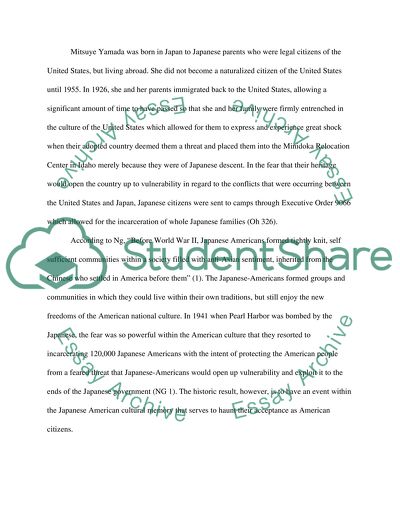Cite this document
(“Analysis of poem the question of loyalty by Mitsuye Yamada Essay”, n.d.)
Retrieved de https://studentshare.org/literature/1582335-analysis-of-poem-the-question-of-loyalty-by-mitsuye-yamada
Retrieved de https://studentshare.org/literature/1582335-analysis-of-poem-the-question-of-loyalty-by-mitsuye-yamada
(Analysis of Poem the Question of Loyalty by Mitsuye Yamada Essay)
https://studentshare.org/literature/1582335-analysis-of-poem-the-question-of-loyalty-by-mitsuye-yamada.
https://studentshare.org/literature/1582335-analysis-of-poem-the-question-of-loyalty-by-mitsuye-yamada.
“Analysis of Poem the Question of Loyalty by Mitsuye Yamada Essay”, n.d. https://studentshare.org/literature/1582335-analysis-of-poem-the-question-of-loyalty-by-mitsuye-yamada.


